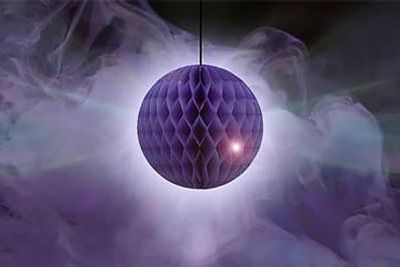By Laura Latzko, May 2017 Issue.
Voguing and waacking, two styles of dance connected to avant-garde fashions and the expression of social, political and economic ideals, have been celebrated within the underground LGBT subculture since the 1970s.
The rise of ball culture (think: Paris Is Burning) cultivated a scene where individuals, belonging to houses and families, would compete by “walking” or dancing for trophies or prizes.
Arizona State University’s Urban Arts Club will spotlight voguing and waacking, and provide an open space for self-expression, as part of its annual Come As You Are (CAYA) event April 27-29.
The three-day event will include a “Bodies on the Line,” a panel discussion, voguing and waacking community dance workshops and culminate with the Lavender Ball, featuring performances, a fashion show, dance battles, and more.
According to Marcus White, assistant professor at the ASU Herberger Institute for Design and the Arts and co-advisor to the Urban Arts Club, these events encourage people of different races, classes, sexualities, gender identities, religious backgrounds and ethnicities to have a voice and define who they are in different ways.
“CAYA is a space for folks to come and reimagine who they are and what is possible,” White said. “If they ever wanted to embody an alter ego or practice their skills in waacking and voguing, they have the space to express themselves, to find resilience and to connect with their community.”
As part of the “Bodies on the Line” panel discussion, ASU Assistant Professor and playwright Nia Witherspoon, author of Butch Queens Up in Pumps Marlon M. Bailey, and members of Trans Queer Pueblo and will speak on such topics as identity politics in performance.
The Lavender Ball will incorporate a fashion show with designs by ASU Fashion Major Natalya Dellinger and Jamie Lyon of Electric Lyon Fashion, dance performances by local troupes and spoken word by Joy Young.
Linda LaBeija, a poet, voguer and transgender and civil rights activist, and X-centric, a waacking and voguing practitioner from Los Angeles, will also be part of the CAYA festivities.
Although the styles of voguing and waacking are associated with the LGBT community, White said they are open to anyone – and so are these events.
“Regardless of if you’re gay or not, you can experience these forms. CAYA is a celebration of identity, celebration of becoming who you are, coming to the space as you are,” White said. “Voguing and waacking were created in LGB and trans communities, spaces and histories … The ball is designed to be a safe space for people to explore and expand possibilities.”
According to Ruby Morales, ASU’s Urban Arts Club president, the styles of dance, have historically been important vehicles of expression for oppressed groups.
“The style comes from something a lot deeper, of people of color and gays not being able to express themselves in ways that they wanted,” Morales said.
The Lavender Ball, she added combines a celebration of history with an element of fantasy, because attendees are invited to express themselves however they wish for the evening.
“You can wear whatever you want. You can be whoever you want,” she said. “Whoever you’ve ever dreamed of being, tonight is the night you can be that person.”
All events are open to the public and attendees of all ages are welcome. For more information, search “Come As You Are: The Lavender Ball” on Facebook or email asuurbanarts@gmail.edu.
“Bodies on the Line” Panel Discussion
6-8:30 p.m. April 27
Karamba Nightclub, 1724 E. McDowell Road, Phoenix
facebook.com/events/958499924287093
Community Dance Workshops
5-6 p.m. April 28
The Jukebox Dance Studio, 1817 S. Horne St., Unit #1, Mesa
$5 per person, per workshop
facebook.com/events/1539107312812255
The Lavender Ball
6:30-11:30 p.m. April 29
Fair Trade Café at Civic Space Park, 424 N. Central Ave., Phoenix
General admission, $8-$10; students with ID, $5 at the door
Tickets: eventbrite.com/e/come-as-you-are-lavender-ball-tickets-33085787481
